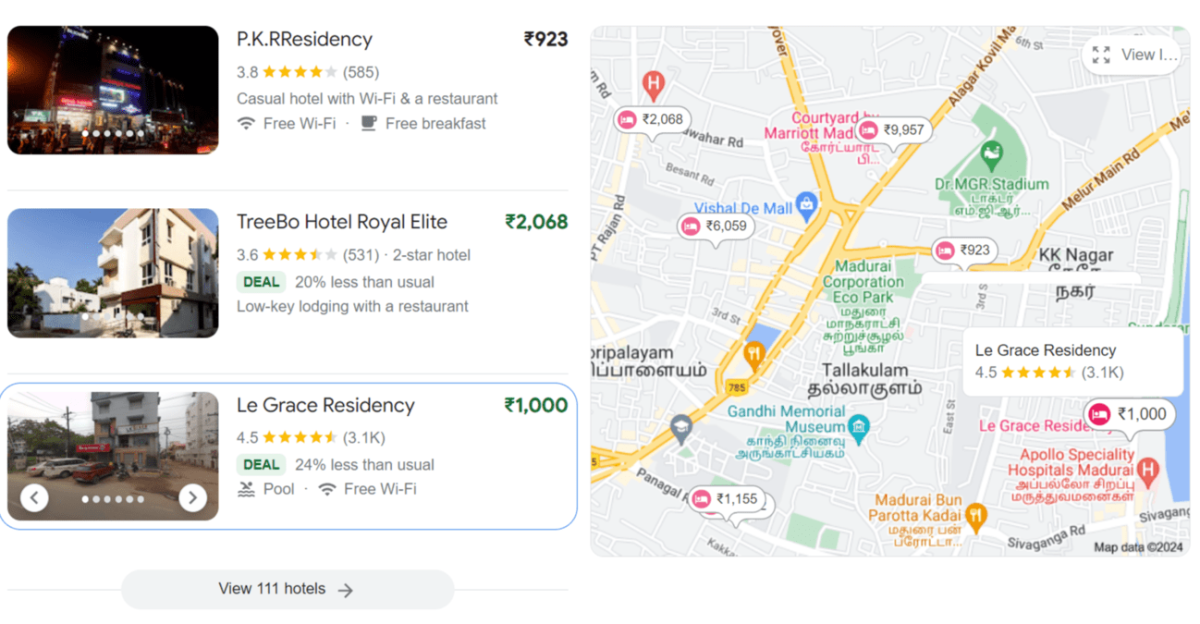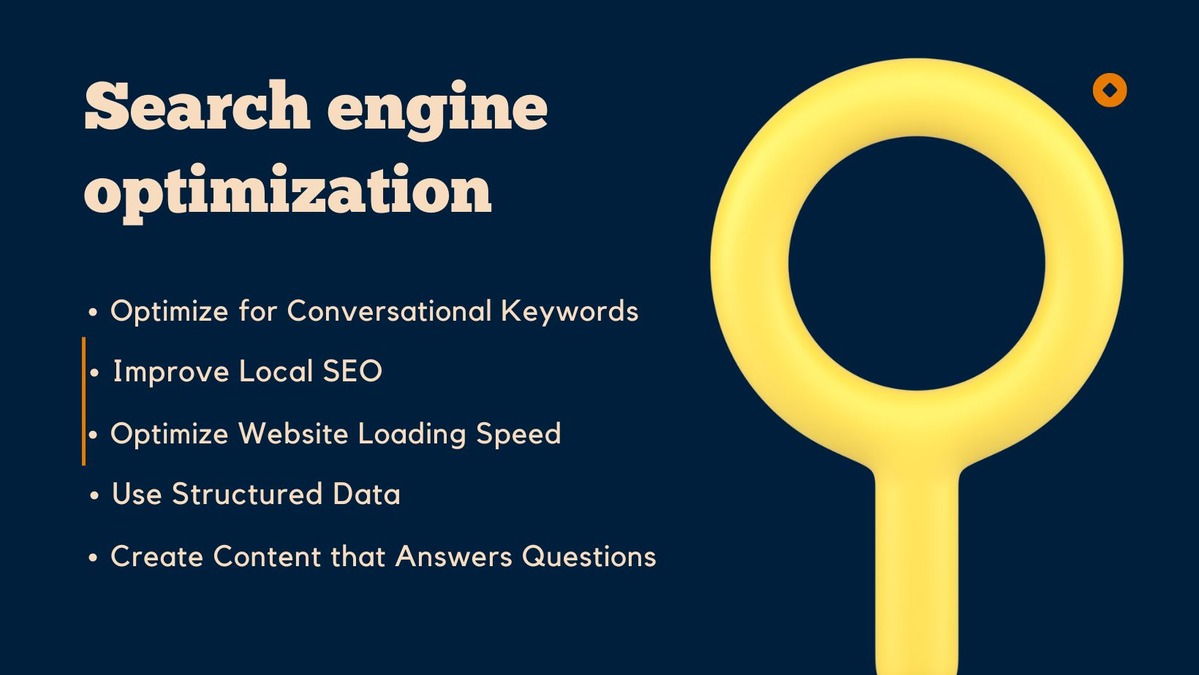In today’s digital world, voice search optimization has become an essential component of digital marketing strategies. As more people rely on voice-activated devices like smartphones, smart speakers, and virtual assistants, it’s essential to ensure your website is optimized for voice search. This helps users easily find your content when they ask their devices questions, enhancing their overall experience and keeping your site competitive. This article will walk you through the importance of voice search optimization and explained in detail on some of the key strategies on how to maximize voice search optimization to boost your online visibility. As the usage of voice search becomes a daily habit for more than 50% of all adults.
What is voice search optimization?
Voice search optimization is about making changes to your website so it works better with how people talk when they use devices like smartphones or smart speakers to search the internet. Instead of typing, people speak naturally, using full sentences or questions. By making your website better at understanding and matching the way people speak, you can help it appear as a top result when someone uses voice search to find information related to what you offer. It’s like training your website to listen more effectively!
Why is Voice Search SEO Important?
Voice search is growing rapidly, with a significant percentage of internet users adopting voice as their preferred method of search due to its convenience and speed. Optimizing for voice search not only positions your site to be more accessible via these devices but also enhances user experience, potentially increasing engagement and conversions.
Benefits of using Voice Search Optimization
- Improved User Experience: Voice search makes it easier and faster for users to find information, enhancing their overall experience on your site.
- Increased Visibility: Optimizing for voice search can help your website rank higher in search results, especially in featured snippets.
- Enhanced Local SEO: Voice searches often include local queries, making it easier for nearby customers to find your business.
- Higher Engagement: Voice search can lead to more natural and conversational interactions, boosting user engagement and retention.
- Future-Proofing: Staying ahead with voice search optimization prepares your website for evolving search technologies and user behaviors.
Key Strategies for Voice Search Optimization
To optimize for voice search, it’s important to write in a natural, conversational tone and pay special attention to local SEO. This helps capture the attention of users who are often looking for services or businesses close to them using voice commands.
Optimize for Conversational Keywords
By optimizing for conversational keywords, you align your content with the natural way people use voice search, improving your visibility and relevance. Here we guide you through some major strategies to optimize the conversational keywords.

- Understand Natural Language Queries: Research how people speak and phrase their questions. Use tools like Google’s “People also ask” and voice search queries.
- Use Long-Tail Keywords: Focus on longer, natural-sounding keyword phrases that mimic how people speak. For example, instead of “best pizza,” use “Where can I find the best pizza nearby?”
- Create Q&A Content: Develop content that answers common questions in a conversational tone. FAQ pages are particularly effective.
- Incorporate Natural Phrasing: Write in a way that reflects natural speech patterns. Use complete sentences and avoid overly technical language.
- Optimize for Featured Snippets: Write your content in a way that clearly and directly answers common questions. This makes it more likely to appear in the quick answers provided by voice search, improving your visibility.
Example of Optimizing for Conversational Keywords
Original Keyword: “Best coffee shop”
Conversational Keyword: “Where is the best coffee shop around here?”
Optimized Content Example:
Title: “Where is the Best Coffee Shop Around Here?”
Content: Looking for the best coffee shop around here? Our cafe offers a cozy atmosphere and the finest coffee in town. Whether you prefer a strong espresso or a creamy latte, we have something for everyone. Conveniently located in the city center, we’re the perfect spot for your morning coffee or afternoon break.
Q&A Section:
Q: Where is the best coffee shop around here?
A: Our cafe, located in the city center, is renowned for its exceptional coffee and welcoming ambiance. Come visit us for a great coffee experience!
What is Local SEO
Local SEO in voice search optimization focuses on making your website more visible to people searching for services or businesses near them using voice commands. It involves:

- Including Local Keywords: Use specific details like city, neighborhood, and landmarks in your content.
- Optimizing Google My Business: Ensure your business profile is up-to-date with accurate information.
- Gathering Reviews: Encourage satisfied customers to leave positive reviews online.
- Consistent NAP Information: Make sure your Name, Address, and Phone number are consistent across all platforms.
Why Local SEO in Voice Search Optimization is Important:
Local SEO, in voice search optimization, helps your business get found by people nearby using voice commands. As more people use voice search for quick answers, optimizing for local SEO makes sure they find you easily. This boosts your visibility, makes your business more accessible, and improves the user experience by providing accurate information quickly. It can lead to more engagement, more foot traffic, and ultimately, more sales for your business.
How Local SEO Works
Local SEO helps your business show up in search results for people nearby. It involves using local keywords, updating your address and phone number online, collecting customer reviews, and listing your business in local directories. By doing this, search engines can understand where your business is and what you offer, making it easier for local customers to find you when they search using voice or text.
Important Steps to Do Local SEO:
These steps help search engines understand your location and services, making it easier for local customers to find you.
- Optimize Google My Business: Keep your profile updated with accurate details.
- Use Local Keywords: Include city and neighborhood names in your content.
- Gather Reviews: Encourage customers to leave positive reviews.
- Consistent NAP: Ensure your Name, Address, and Phone number are the same across all platforms.
- Local Listings: Add your business to local directories like Yelp and TripAdvisor.
- Mobile Optimization: Ensure your website is mobile-friendly.
- Create Local Content: Write about local events and news relevant to your business.
Tools for Local SEO:
These tools help enhance your local SEO, making it easier for voice search users to find your business.
- Google My Business: Essential for managing your business profile.
- Moz Local: Keeps your business information consistent across directories.
- BrightLocal: Tracks local search performance and manages customer reviews.
- Yext: Syncs your business details across multiple platforms.
- Ahrefs: Helps with local keyword research and tracking.
- Whitespark: Finds opportunities for local citations.
- SEMrush: Analyzes and optimizes your local SEO efforts.
Statistics on Local SEO
These statistics show how crucial local SEO is for attracting nearby customers and driving business.
- 46% of Searches: Almost half of all Google searches are looking for local information.
- Local Searches Lead to Visits: 76% of people who search for something nearby on their smartphone visit a business within a day.
- Voice Search Popularity: 58% of consumers use voice search to find local business information.
- Local Business Websites: 88% of searches for local businesses on a mobile device either call or visit the business within 24 hours.
- Online Reviews: 86% of people look at the location of a business on Google Maps, and reviews significantly influence their decisions.
Optimize Your Website’s Loading Speed
You may increase the user experience and your website’s rating in voice search results by making your page load faster.
- Compress Images: Use tools to reduce the size of your images without compromising quality. This expedites the loading of your pages.
- Minimize Code: Simplify and clean up your HTML, CSS, and JavaScript. Remove unnecessary code and comments.
- Use Browser Caching: Enable browser caching to store static files on users’ devices, reducing load times on subsequent visits.
- Leverage Content Delivery Networks (CDNs): Use CDNs to distribute your content globally, ensuring faster delivery to users regardless of their location.
- Optimize Server Response Time: Ensure your server responds quickly by using reliable hosting services and optimizing server settings.
- Enable Compression: Use Gzip or Brotli compression to reduce the size of your web files, making them faster to download.
- Reduce Redirects: Minimize the number of redirects to decrease additional HTTP requests and improve load time.
What is Structured Data?
Structured data is a consistent format to provide details about a page and classify the page content. It is frequently used to improve search engines to understand the content of your website better.
Why is it Important for Voice Search Optimization?
Here we guide you through some major steps to understand the importance of of voice search optimization.
- Enhanced Search Results: Structured data can help your content appear in rich snippets or answer boxes, which are often used in voice search results.
- Better Understanding: Using structured data helps search engines understand the context of your content better. This makes it easier for them to provide accurate answers to voice search queries.
- Improved Ranking: Websites with structured data are more likely to be seen as authoritative and relevant, improving your chances of ranking higher in search results.
How to Implement Structured Data:
- Use Schema Markup: Add schema.org markup to your website’s HTML to provide detailed information about your content.
- Focus on FAQ and How-to schema.org : These are particularly useful for voice search, as they match the question-and-answer format often used.
- Utilize JSON-LD: This is a common format for structured data that’s easy to add and update.
Examples of structured data:
- FAQ Page schema.org : This helps your FAQ content be featured prominently in search results.
- Local Business schema.org : Provides detailed information about your business, including address, phone number, and operating hours.
Create Content That Answers Questions
By following these steps, you can create content that effectively answers questions and improves your visibility in voice search results.
- Understand Your Audience: Identify common questions your target audience might ask about your industry or business.
- Use Natural Language: Write in a conversational tone that mimics how people speak.
- Structure Your Content: Use headers for each question, followed by a clear and concise answer.
- Implement FAQ Pages: Create a dedicated FAQ section on your website to address common queries.
- Use Long-Tail Keywords: Incorporate keywords that reflect how people naturally ask questions.
- Use Structured Data: Apply FAQ schema markup to help search engines recognize and display your content in voice search results.
Example:
Answer: Use conversational language, incorporate long-tail keywords, and develop a FAQ page that answers frequently asked questions to make your website voice search friendly. Make sure the information you provide is simple to read and comprehend, just like others do.
Monitoring and Adapting to Voice Search Trends
It is critical to keep up with the most recent advancements in voice search technology and how users are utilizing it. Here’s how you can maintain tabs:
Stay Updated
Since voice search technology is always changing, it is important to keep up with the newest developments in tools, fashions, and search engine algorithmic modifications. You may continue to reap the rewards by changing your voice search SEO tactics on a regular basis.
Analyze Voice Search Performance
Utilize analytics tools to track voice search performance of your website. Pay close attention to important data like voice search traffic, bounce rates, and conversion rates. Gaining insight from this data will enable you to improve the efficiency of your SEO tactics and audience outreach. Making better selections in this manner can help your site perform better where it matters most.
Experiment
Try different approaches to see what gives the best results. Maybe adding a new FAQ section helps, or perhaps modifying the way you use keywords makes a difference.
Conclusion
Currently, voice search optimization plays a significant role in SEO strategies. You can improve your website’s visibility and ease of voice search accessibility by implementing the techniques in this article.This aids in keeping you current with the ever evolving field of digital marketing.To take advantage of voice search, start optimizing for it right now.
FAQ on Voice Search Optimization
Q:1: What is voice search optimization?
Ans. Voice search optimization is the process of adjusting your website content and structure to improve its visibility and functionality for searches conducted through voice commands, making it easier for voice-activated devices to understand and retrieve your information.
Q:2: Why is voice search optimization important for my website?
Ans. As voice-assisted devices become more common, optimizing for voice search helps ensure your site remains accessible and relevant, improves user experience, and increases the chances of your site being chosen by voice search technologies.
Q:3: How do I optimize my website for voice search?
Ans. Focus on conversational language, target long-tail keywords, enhance your local SEO, ensure your website loads quickly, use structured data markup, and create content that answers common questions directly.
Q:4: What are the best tools for voice search optimization?
Ans. Tools like Google’s Search Console, Schema.org for markup, and various SEO platforms that offer keyword insights and performance analysis can be very helpful.
Q:5: How can I find voice search keywords?
Ans. Use keyword tools that provide insights into conversational queries, listen to customer interactions, and consider natural language phrases that relate to your business and services.
Q:6: What’s the difference between voice search and traditional search optimization?
Ans. Voice search queries tend to be longer, more conversational, and often phrased as questions, unlike the shorter, more fragmented keywords typically used in traditional search.
Q:7: How does local SEO fit into voice search optimization?
Ans. Local SEO is crucial for voice search as many voice queries are looking for local information. Ensure your local business listings are accurate and complete, especially on platforms like Google My Business.
Q:8: Can voice search optimization impact my website’s traffic?
Ans. Yes, by making your site more discoverable via voice search, you can increase organic traffic, particularly from mobile users who frequently use voice search for immediate needs.
Q:9: How should I structure my content for voice search?
Ans. Structure content to answer questions directly, use headers for easy snippet identification, and incorporate FAQs that align with conversational voice queries.
Q:10: What are common mistakes to avoid in voice search optimization?
Ans. Avoid over-optimizing for exact phrases at the expense of natural language, neglecting mobile optimization, and overlooking the importance of structured data.
Read More: How to Conduct a Website Audit for SEO


